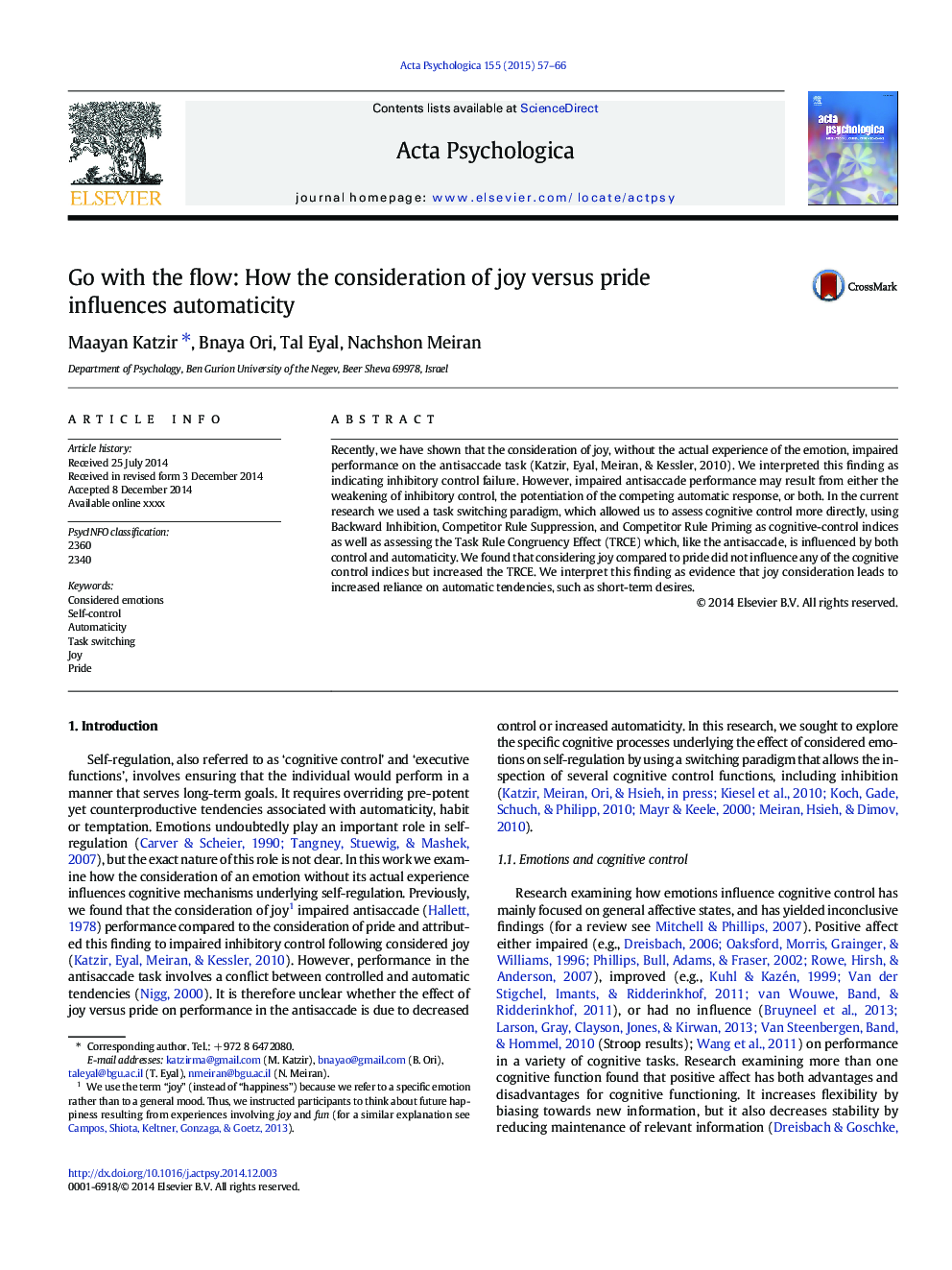| Article ID | Journal | Published Year | Pages | File Type |
|---|---|---|---|---|
| 7277512 | Acta Psychologica | 2015 | 10 Pages |
Abstract
Recently, we have shown that the consideration of joy, without the actual experience of the emotion, impaired performance on the antisaccade task (Katzir, Eyal, Meiran, & Kessler, 2010). We interpreted this finding as indicating inhibitory control failure. However, impaired antisaccade performance may result from either the weakening of inhibitory control, the potentiation of the competing automatic response, or both. In the current research we used a task switching paradigm, which allowed us to assess cognitive control more directly, using Backward Inhibition, Competitor Rule Suppression, and Competitor Rule Priming as cognitive-control indices as well as assessing the Task Rule Congruency Effect (TRCE) which, like the antisaccade, is influenced by both control and automaticity. We found that considering joy compared to pride did not influence any of the cognitive control indices but increased the TRCE. We interpret this finding as evidence that joy consideration leads to increased reliance on automatic tendencies, such as short-term desires.
Related Topics
Life Sciences
Neuroscience
Cognitive Neuroscience
Authors
Maayan Katzir, Bnaya Ori, Tal Eyal, Nachshon Meiran,
